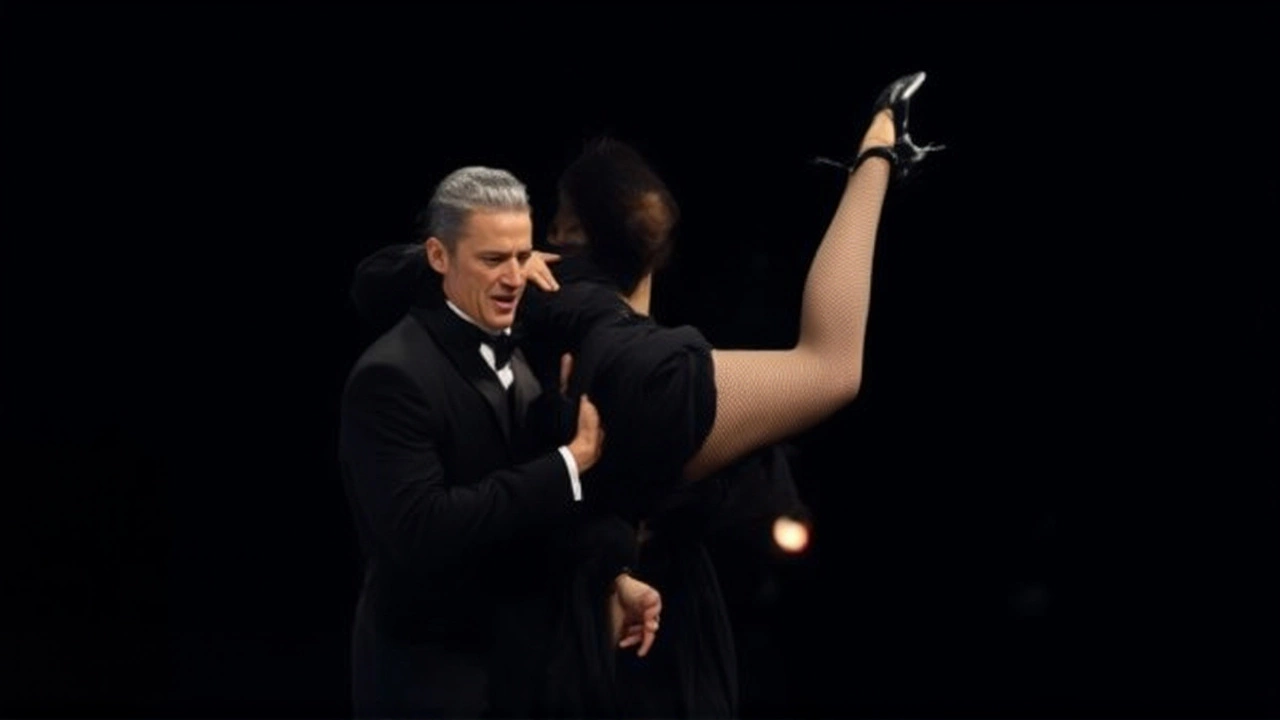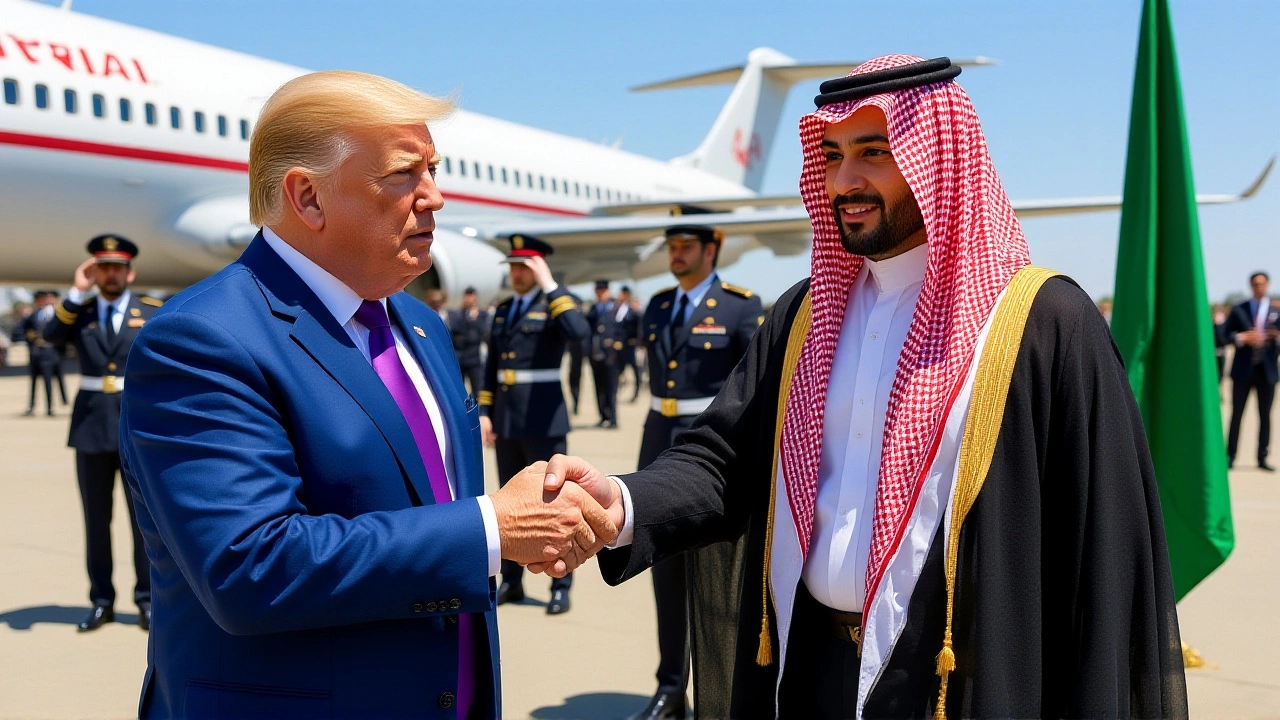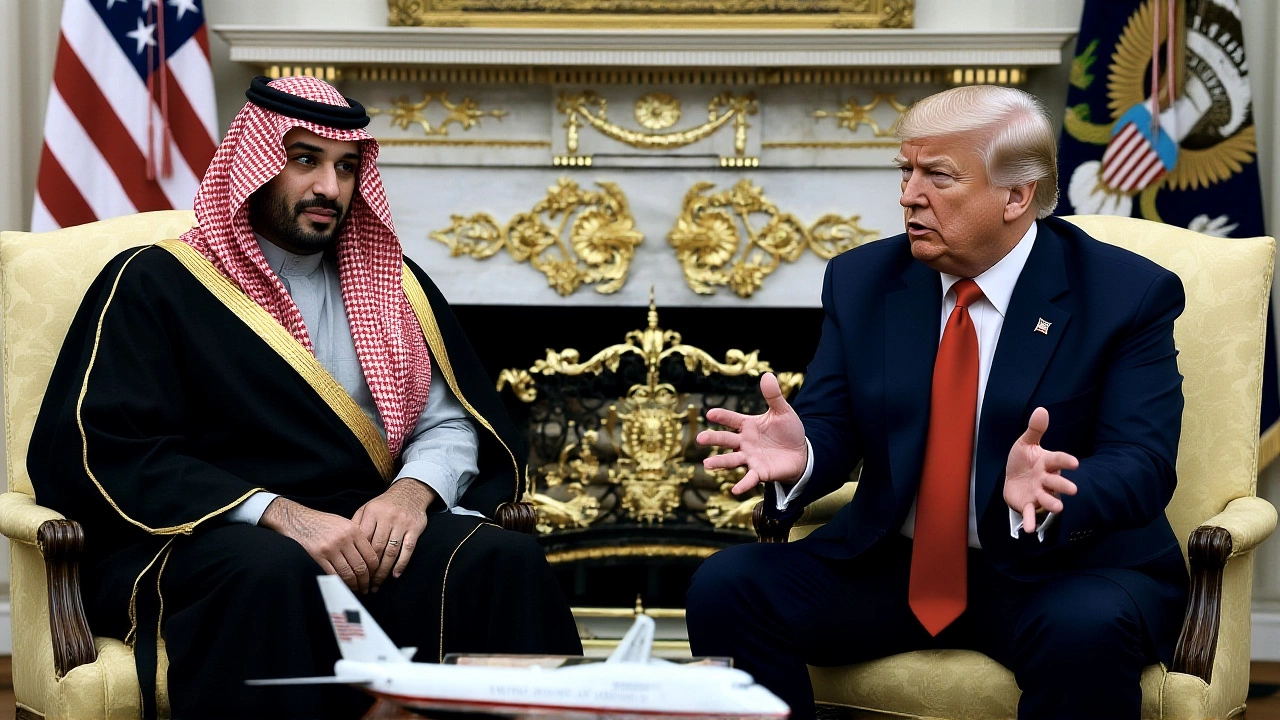On November 18, 2025, Donald Trump, the 45th president of the United States, welcomed Mohammed bin Salman, Crown Prince and Prime Minister of the Kingdom of Saudi Arabia, to the White House for a high-stakes diplomatic visit that ended with a black-tie dinner in the East Room and a ceremonial farewell on the South Lawn. The event, orchestrated under the watch of the U.S. Department of State, wasn’t just a photo op—it was a strategic reset in U.S.-Saudi relations, with defense contracts, energy deals, and the quiet hope of normalizing ties between Saudi Arabia and Israel at the center of closed-door talks. But as the champagne flowed and the orchestra played, questions about human rights, war crimes, and corporate profiteering lingered like smoke after a candle is blown out.
A Dinner of Power, Not Principle
The formal dinner in the East Room drew billionaires, defense contractors, and top Republican donors—many of whom stood to benefit from the agreements discussed. According to Defense Now, the agenda included expanding arms sales through Lockheed Martin Corporation and Raytheon Technologies Corporation, deepening Saudi investments in U.S. infrastructure, and exploring joint ventures in AI-driven energy systems. The Saudis, flush with oil wealth and seeking global legitimacy, are eager to diversify beyond petrodollars. The U.S., desperate for new markets amid slowing domestic demand, is happy to oblige.Questions That Broke the Surface
The veneer of diplomacy cracked when ABC News reporter Mary Bruce pressed Trump on the Epstein files and directly challenged bin Salman about the 2018 murder of journalist Jamal Khashoggi and allegations of Saudi involvement in the September 11 attacks. Trump didn’t just deflect—he erupted. “I’m very proud of the job he’s done. What he’s done is incredible in terms of human rights and everything else,” he said, according to the World Socialist Web Site (WSWS). It was a line that echoed the rhetoric of a man who once called Khashoggi’s killing “a terrible thing,” but now, with a handshake and a smile, seemed to rewrite history.The Numbers Behind the Smile
WSWS countered Trump’s praise with cold, hard data: Saudi Arabia executed 345 people in 2024—a record high, according to human rights monitors. That’s more than the previous three years combined. Among them: political dissidents, women’s rights activists, and members of the Shia minority. The kingdom’s legal system, critics say, functions less as justice and more as political theater. Meanwhile, the U.S. has sold over $20 billion in weapons to Riyadh since 2020, with nearly $7 billion in contracts signed just this year. The arms industry doesn’t care about the victims. It cares about the balance sheet.
What’s Really Being Sold?
The real story isn’t in the speeches or the state dinners. It’s in the fine print of defense contracts and the silent agreements made over cognac in the Treaty Room. WSWS described the meeting as a gathering of “two billionaire rulers perched atop political powder kegs.” The Saudis, facing internal unrest and regional isolation, need U.S. military cover. The Trump-aligned U.S. elite, facing economic stagnation and declining influence, need Saudi cash and oil stability. And Iran? Russia? China? They’re the common enemy—conveniently framed as threats to justify the flow of bombs, missiles, and surveillance tech.Behind closed doors, officials reportedly discussed a potential U.S.-Saudi-Israeli security pact, one that would allow Saudi Arabia to normalize relations with Israel in exchange for advanced U.S. defense systems—possibly even nuclear-capable delivery platforms. No official announcement was made. But whispers in the State Department suggest the framework is already drafted.
The World Is Watching
While the White House released glossy photos of the two leaders laughing beside a Christmas tree, global protests erupted in London, Istanbul, and Beirut. In Cairo, students held signs reading, “No to Blood Money Diplomacy.” The PBS NewsHour live-streamed the event to over 1.2 million viewers, but its reporting focused on protocol—not power. Meanwhile, in Riyadh, state media ran uninterrupted footage of bin Salman inspecting new military hardware. The people of Saudi Arabia, who haven’t seen a free election in over 80 years, were not invited to the dinner.
What Comes Next?
The next major milestone is the G20 summit in Rio de Janeiro next March, where the U.S. and Saudi Arabia plan to jointly push for a new global energy architecture—one that sidelines renewable investments and locks in fossil fuel dominance. Analysts warn that if the U.S. continues to prioritize short-term profit over human rights, it risks alienating its democratic allies and emboldening authoritarian regimes worldwide. And while Trump may claim victory, history won’t remember this as a triumph of diplomacy. It will remember it as the moment America chose profit over principle.Frequently Asked Questions
Why did Trump praise Mohammed bin Salman’s human rights record despite Saudi Arabia executing 345 people in 2024?
Trump’s statement reflects a pattern of prioritizing geopolitical and economic interests over human rights concerns. The U.S. relies on Saudi Arabia for oil stability, arms sales, and regional counterweighting against Iran and China. Publicly defending bin Salman serves to secure future defense contracts and investment deals, even as internal U.S. agencies and international watchdogs document the kingdom’s escalating repression.
What role do Lockheed Martin and Raytheon play in U.S.-Saudi relations?
Lockheed Martin and Raytheon are the two largest U.S. defense contractors supplying Saudi Arabia with fighter jets, missile defense systems, and precision-guided munitions. In 2024 alone, they secured over $5 billion in new contracts. Their lobbying efforts have directly influenced U.S. policy, ensuring arms exports continue despite congressional objections and international criticism over civilian casualties in Yemen.
Is there evidence Saudi Arabia was involved in the 9/11 attacks?
While 15 of the 19 hijackers were Saudi nationals, no official U.S. government report has directly tied the Saudi state to the planning of 9/11. However, declassified documents show that some Saudi officials provided financial and logistical support to individuals linked to the attackers. The 2021 release of the 28 redacted pages from the 9/11 Commission Report fueled renewed scrutiny, but legal and diplomatic barriers have prevented full accountability.
What are the implications of Saudi-Israeli normalization?
Normalization could reshape Middle Eastern security dynamics, potentially leading to a U.S.-backed military alliance that includes Israel, Saudi Arabia, and other Gulf states. While it might reduce regional tensions, critics warn it could also legitimize authoritarian rule and divert attention from Palestinian rights. The deal may hinge on U.S. guarantees of advanced weapons and nuclear technology access—raising serious non-proliferation concerns.
How does this visit compare to past U.S.-Saudi summits?
Unlike Obama’s cautious engagement or Biden’s 2022 visit, which included public criticism of human rights abuses, Trump’s 2025 meeting was deliberately devoid of dissent. It mirrors the 2017 Trump-bin Salman summit, which also prioritized arms deals over accountability. But this time, with global unrest rising and U.S. credibility declining, the moral cost of such diplomacy may be harder to ignore.
What’s next for U.S.-Saudi relations after this visit?
Expect a flurry of defense and energy deals in early 2026, with potential announcements at the G20 summit in Rio. The U.S. may also push for Saudi participation in a new Middle East Security Pact. But growing domestic pressure—from Congress, human rights groups, and even parts of the military—could stall some initiatives. The real test will be whether Congress dares to block arms sales under the Arms Export Control Act.

